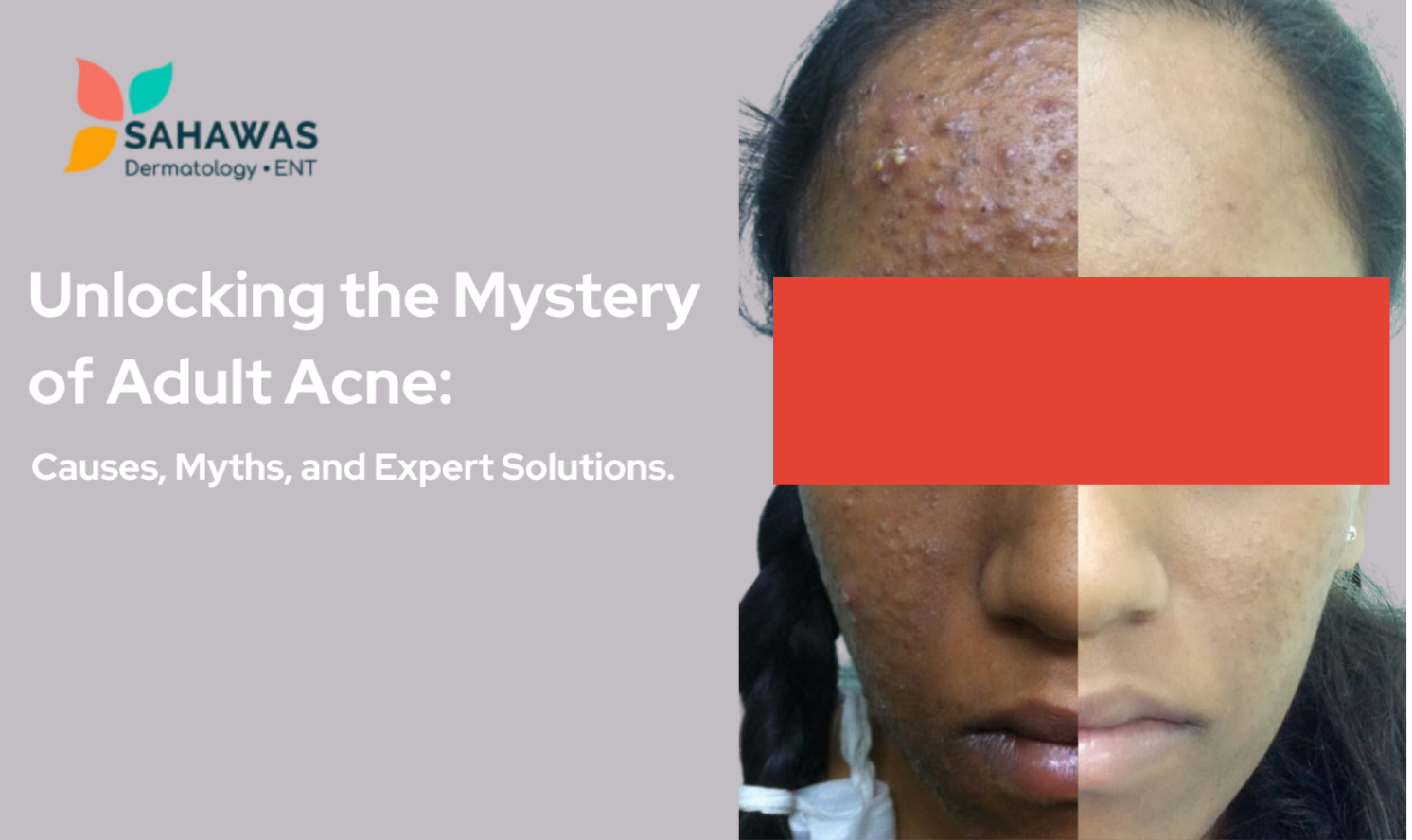Are you in your 20s and 30s, wondering why you still get pimples? Many women of today’s generation experience a premenstrual flare of acne about a week before their period. Are you frustrated with acne, trying home remedies and over-the-counter products, yet unable to figure out why it persists into adulthood?
Let’s delve into the world of adult acne and address the rising phenomenon of “Maskne” in the COVID era.
Understanding Adult Acne:
Acne is a condition affecting the sebaceous or oil-producing glands on the face, chest, scalp, and back. Excess oil production can lead to gland blockage, creating a breeding ground for bacteria like Propionibacterium acnes. Hormone receptors in these glands respond to hormonal fluctuations, leading to conditions like “Adult Acne,” especially in women with irregular cycles or PCOS.
Factors Contributing to Adult Acne:
The surge in adult acne prompts questions about its links to stress, lifestyle, Westernized diets, lack of exercise, and food quality. Research suggests that these factors indeed play a role.
Expert Guidance for Adult Acne
When a patient with adult acne seeks help, a Dermatologist follows a thorough approach:
- Lifestyle Evaluation: Detailed history regarding lifestyle, menstrual patterns, and product usage.
- Hormone Tests: For women, hormone level tests to identify underlying hormonal imbalances.
- Acne Diagnosis and Grading: Accurate assessment leading to personalized treatment plans.
- Medication Prescription: Oral or topical medications tailored to the severity of acne.
- Additional Assessments: Examination for signs of androgen excess, such as excess facial hair or hair thinning.
Dermatological Treatments for Adult Acne:
Dermatologists offer a range of solutions:
- Topical and Oral Medications: Tailored to the severity of acne, including hormonal correction if necessary.
- Procedures: Comedone extractions, chemical peels, lasers, and scar treatments like microneedling and resurfacing lasers.
- Guidelines and Follow-ups: Dermatologists use researched guidelines and medicines for ongoing acne management.
Dispelling Myths and Home Remedies:
Contrary to popular belief, a Dermatologist’s treatment is not a temporary fix. Acne is an ongoing process, and following a Dermatologist’s advice, along with lifestyle changes, is crucial for sustained results. Home remedies like toothpaste, garlic, lemon juice, and excessive squeezing can lead to complications.
Lifestyle Changes for Adult Acne:
Weight control, diet modification, exercise, avoiding dairy and sugary products, and maintaining good facial hygiene significantly contribute to managing adult acne. In the era of “Maskne,” regular mask washing and avoiding tight-fitting masks are essential.
Investing in Your Skin's Health:
While specialist consultations may seem pricier, the expertise and years of training invested by Dermatologists are invaluable. Alongside treatments, lifestyle adjustments, including exercise and dietary changes, are crucial for long-term acne management.
Invest in your skin’s health and consult a Dermatologist for personalized guidance. Remember, a Dermatologist’s dedication stems from years of study and the desire to make a positive impact on patients’ lives. Thank you, Shweta Potdar, for providing a platform to share valuable insights!

